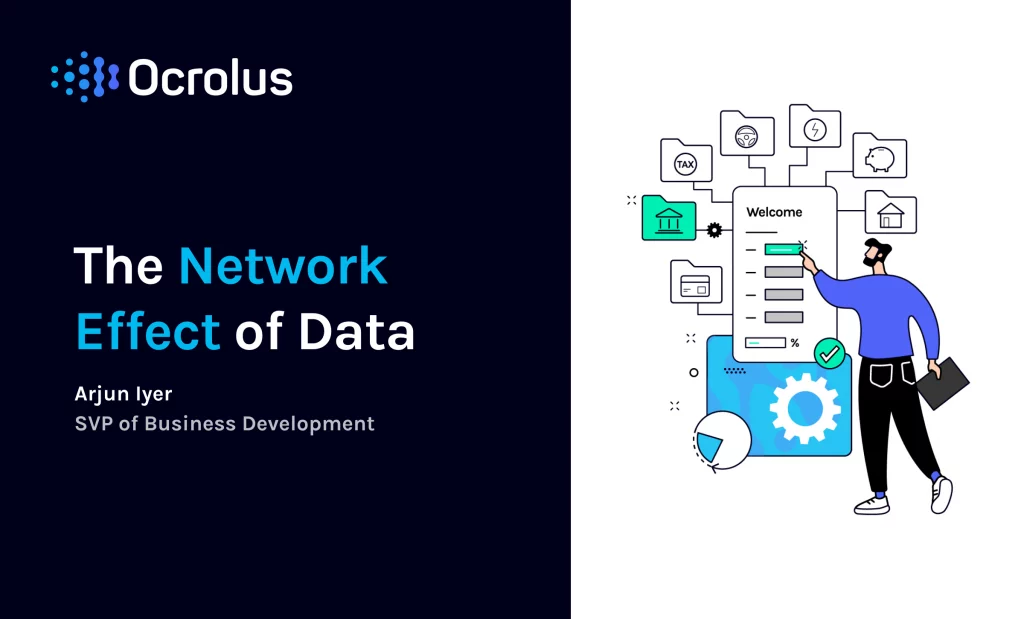This website uses cookies so that we can provide you with the best user experience possible. Cookie information is stored in your browser and performs functions such as recognising you when you return to our website and helping our team to understand which sections of the website you find most interesting and useful.
What is the Network Effect of Data? (And Why You Should Be a Part of It)

Generating and using rich data to drive business performance is now a central objective of so many companies. However, while it comes with its challenges, it may not be enough on its own. According to Gartner, external data sharing generates “three times more measurable economic benefit” than an organization relying only on its own network data.
To maximize outcomes, organizations must develop a system of gathering, verifying, and interpreting data efficiently, while also incorporating a streamlined sharing method. For this reason, organizations are increasingly looking to integrate a data network effect into their operational procedure.
The network effect of data
What is the network effect?
The network effect refers to how a product’s usefulness increases as more people use it. Some of the most widely used services globally rely on the benefits of networking. This includes social media networks, home delivery services, rideshare apps, online ticket exchanges, and e-commerce platforms. It is the user pool networking that enables many services and products to work well and improve their functionality.
How does data play a part?
Adding data to the network effect equation, typically by integrating technologies and applications like analytics, machine learning, and advanced robotic automation transforms models where capturing and interpreting data becomes more accurate and effective as more users process higher data volumes. With the addition of data and smart technologies, the network can constantly learn about its user base and products, improving services continuously and informing business decision-making through data-driven insights.
A prime example of the network effect of data is Google’s internet search engine; as the data that Google generates proves helpful to users, more users will use it. Google learns to populate specific results, ensuring improved accuracy and the ability to satisfy more user queries.
A data network is a great enabler for organizations
For a data network to be successful, there needs to be constant data gathering from relevant sources and consistent data analysis. It also requires the central integration of smart technologies such as advanced machine learning and knowledge engineering to optimize the business use case potential of the gathered data.
With this in place, organizations whose products create a user network, such as telecommunications carriers or financial institutions, can generate communal benefits. The data-powered aspect enables organizations to constantly learn about their user base – preferences, levels of satisfaction, and use habits – as well as operational inefficiencies.
This approach allows for a more precise and up-to-date overview of business performance, equipping organizations to identify strong points and other areas where they can make improvements. It also contributes enormously towards future product development and service updates, based on a wealth of highly relevant user and system data. Without a data network in place, these benefits are not nearly as readily attainable, if at all.
Sharing data network insights for exponential gains
The benefits of participating in a data network are many, including the ability to fine-tune product offerings and customer experience and identify productivity improvement areas. It is only when sharing data beyond an organization’s network that it can reach its true potential as a key business driver.
By participating in data sharing, organizations go beyond their own data network, which grants access to all manner of new metrics and data insights. For instance, these metrics might include user behavior in geographical regions different than where an organization operates, a different set of demographics, or how different network rules and processes from elsewhere may impact a user base. Such rich information can provide powerful insights for organizations to sharpen their own business strategy and tactics, going a long way to inform decision-making.
Without such capabilities, organizations are at a disadvantage by relying only on their own data networks (as sophisticated as they may be). They are essentially locked out of a much bigger data insight pool and rely only on their own sample size. However, if competitors are committed to sharing their own data, it becomes a competitive advantage in a digital business landscape where smart use of data increasingly drives success.
Ocrolus is working to foster this kind of data sharing in the financial industry with a unique privacy-preserving framework. By partnering with Ocrolus, financial institutions are leveraging proprietary data assets to better understand borrowers compared to their peers and the market as a whole.
Learn more about what Ocrolus can do for your organization with your free demo.






